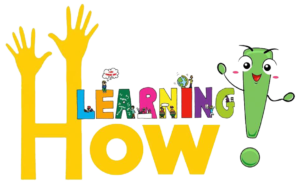Cultivating Critical Thinking Skills in the Classroom

Cultivating Critical Thinking Skills in the Classroom
Nurturing the Thinkers of Tomorrow: The Importance of Critical Thinking Skills
In today’s fast-paced and complex world, the ability to think critically is more crucial than ever. Critical thinking empowers students to analyze information, evaluate arguments, and make informed decisions. As educators, it is our responsibility to cultivate these skills in the classroom, preparing students to navigate challenges, solve problems, and thrive in various aspects of life. In this article, we will explore the significance of cultivating critical thinking skills in the classroom and provide examples of practical strategies that foster the development of these essential skills.
Why Critical Thinking Matters: Beyond Memorization
Critical thinking goes beyond rote memorization and regurgitation of information. It is about engaging students’ minds and encouraging them to question, reason, and evaluate. By developing critical thinking skills, students become active participants in their own learning, capable of analyzing complex issues, considering multiple perspectives, and arriving at well-reasoned conclusions.
Encouraging Questioning and Inquiry: Curiosity as the Catalyst
One effective way to cultivate critical thinking skills is by encouraging questioning and inquiry. Encourage students to ask thought-provoking questions, explore different angles, and seek answers beyond surface-level understanding. By nurturing their curiosity, students become more engaged in the learning process and develop a natural inclination for seeking knowledge.
Analyzing and Evaluating Information: Separating Fact from Fiction
In an era of information overload, the ability to analyze and evaluate information critically is essential. Teach students how to assess the credibility of sources, recognize bias, and distinguish between fact and opinion. Engage them in activities that require analyzing data, evaluating arguments, and drawing evidence-based conclusions. This empowers students to become discerning consumers of information in a digital age.
Promoting Problem-Solving Skills: Real-World Application
Critical thinking is closely linked to problem-solving skills. Provide students with real-world scenarios and open-ended problems that require analysis, creative thinking, and logical reasoning. Encourage them to brainstorm solutions, consider alternatives, and evaluate the pros and cons of different approaches. By engaging in problem-solving activities, students develop resilience, resourcefulness, and the ability to think outside the box.
Encouraging Collaboration and Discussion: Learning from Others
Collaborative activities and classroom discussions are invaluable in developing critical thinking skills. Encourage students to share their ideas, listen actively to their peers, and engage in respectful debates. By considering different viewpoints and challenging their own assumptions, students develop a broader perspective and enhance their ability to analyze complex issues from multiple angles.
Reflective Thinking and Metacognition: Understanding the Thinking Process
Promote reflective thinking and metacognition by encouraging students to reflect on their thinking process. Ask them to articulate their reasoning, justify their conclusions, and evaluate their problem-solving strategies. By becoming aware of their own thinking, students gain insights into their strengths and areas for improvement, allowing them to refine their critical thinking skills over time.
Fostering Thinkers for the Future
Cultivating critical thinking skills in the classroom is a vital endeavor. By nurturing students’ ability to question, analyze, and evaluate, we empower them to become independent thinkers, problem solvers, and lifelong learners. As educators, let us embrace strategies that encourage questioning, promote problem-solving, facilitate collaboration, and foster reflective thinking. Together, we can prepare the thinkers of tomorrow who are equipped to navigate the complexities of the world with confidence.






Leave a Reply
Want to join the discussion?Feel free to contribute!